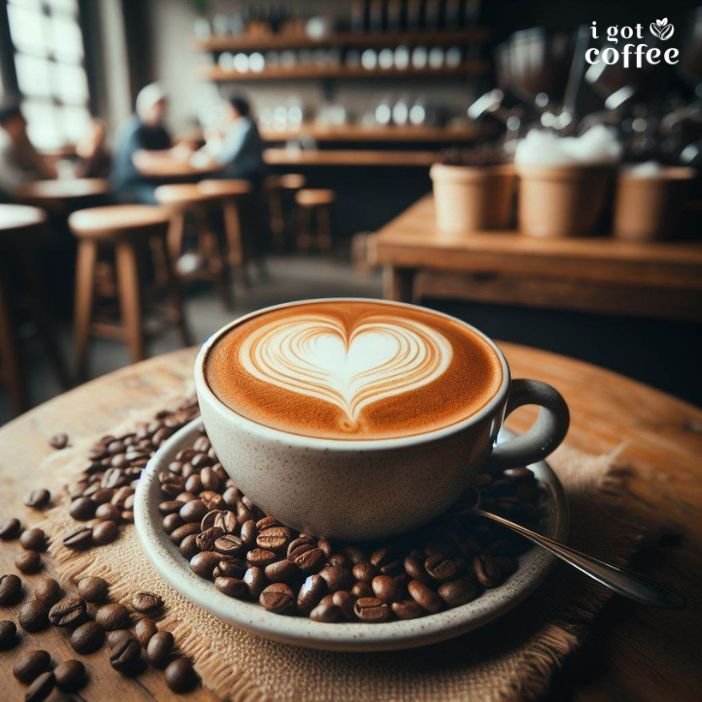What Is Reserve Coffee?
Reserve coffee is a type of coffee that is made from the highest quality beans, which have been carefully selected and sourced from the best regions in the world. This type of coffee is typically more expensive than regular coffee, and is often made with a more complex brewing process. Reserve coffee is typically more flavorful and aromatic than other types of coffee, and is often used in specialty coffee shops.
The Origin and History of Reserve Coffee
Reserve coffee has a long and rich history, dating back to the early 19th century. During this time, coffee was becoming increasingly popular in Europe, and the demand for higher quality beans was growing. In response, coffee producers began to source beans from the best regions in the world, and to create more complex brewing processes. This resulted in the emergence of reserve coffee, which has since become a staple of the specialty coffee industry.
Over the years, reserve coffee has become increasingly popular, and is now widely available in specialty coffee shops around the world. This type of coffee is often used to create unique and complex flavor profiles, and is often used in specialty drinks such as lattes and cappuccinos.
How to Make Reserve Coffee
Making reserve coffee is a complex process, and requires the right equipment and techniques. Here are the steps for making the perfect cup of reserve coffee:
Start by selecting the right beans. Reserve coffee is typically made from the highest quality beans, which have been carefully sourced from the best regions in the world. Look for beans that are freshly roasted, and that have a complex flavor profile.
- Grind the beans to the right size. Reserve coffee should be ground to a medium-fine size, which will allow for the perfect extraction of flavor.
- Use the right brewing method. Reserve coffee is typically brewed using a pour-over method, which allows for a slow and even extraction of flavor.
- Measure the water to coffee ratio. Reserve coffee should be brewed with a ratio of 1:15, which means 15 grams of coffee for every 1 liter of water.
- Monitor the temperature. Reserve coffee should be brewed at a temperature of between 195-205 degrees Fahrenheit, as this will ensure the perfect extraction of flavor.
- Enjoy your cup of reserve coffee!
Choosing the Right Beans for Your Reserve Coffee
When selecting beans for reserve coffee, it’s important to consider the origin, roast type, and flavor profile. Look for beans that have been carefully sourced from the best regions in the world, and that have been freshly roasted. Also, look for beans with a complex flavor profile, such as notes of chocolate, caramel, and nuts.
Types and Variations of Reserve Coffee
There are many different types and variations of reserve coffee, each with its own unique flavor profile. Here are some of the most popular types of reserve coffee:
- Ethiopian Reserve Coffee: This type of reserve coffee is sourced from Ethiopia, and is typically characterized by notes of berry, citrus, and chocolate.
- Kenyan Reserve Coffee: This type of reserve coffee is sourced from Kenya, and is typically characterized by notes of blackberry, citrus, and honey.
- Colombian Reserve Coffee: This type of reserve coffee is sourced from Colombia, and is typically characterized by notes of chocolate, caramel, and nuts.
- Sumatran Reserve Coffee: This type of reserve coffee is sourced from Sumatra, and is typically characterized by notes of earth, spice, and chocolate.
Caffeine Content in Reserve Coffee: What You Need to Know
The caffeine content in reserve coffee can vary depending on the type of beans and the brewing method used. Generally speaking, reserve coffee tends to have a higher caffeine content than regular coffee, as it is made from higher quality beans and is brewed using a more complex process. However, it is important to note that the caffeine content can vary depending on the type of beans and the brewing method used.
Is Reserve Coffee Good for Your Health? Exploring the Benefits
Reserve coffee has many potential health benefits, including improved mental alertness, increased energy levels, and improved mood. Additionally, reserve coffee is rich in antioxidants, which can help to reduce inflammation and protect against chronic diseases. However, it is important to note that consuming too much caffeine can have adverse effects, such as increased anxiety and insomnia. Therefore, it is important to consume reserve coffee in moderation.
Reserve Coffee vs. Single Origin: Understanding the Differences
Coffee is a beloved beverage around the world, and it comes in many varieties. Reserve coffee and single origin coffee are two of the most popular types of coffee, but they have distinct differences. Understanding the differences between them can help coffee lovers make informed decisions when selecting their favorite brew. Let’s explore the brewing methods, flavor characteristics, cultural significance, and health benefits of reserve coffee and single origin coffee.
- Brewing Methods
Reserve coffee is a specialty grade of coffee that is carefully sourced and roasted to bring out the unique characteristics of the beans. The beans are usually sourced from a single farm, estate, or cooperative, and the roasting process is done with precision to bring out the unique flavors of the beans. The beans are then brewed using a variety of methods, such as pour over, French press, and espresso.
Single origin coffee is also carefully sourced and roasted, but it is usually sourced from multiple farms, estates, or cooperatives. The beans are then brewed using a variety of methods, including pour over, French press, and espresso.
- Flavor Characteristics
Reserve coffee is known for its unique and complex flavors, as the beans are carefully sourced and roasted to bring out the unique characteristics of each bean. The flavors of reserve coffee can range from fruity and floral to nutty and chocolatey.
Single origin coffee is also known for its unique and complex flavors, as the beans are carefully sourced and roasted to bring out the unique characteristics of each bean. The flavors of single origin coffee can range from fruity and floral to nutty and chocolatey.
- Cultural Significance
Reserve coffee is often associated with luxury and exclusivity, as the beans are carefully sourced and roasted to bring out the unique characteristics of each bean. Reserve coffee is often served in high-end coffee shops and is considered to be a premium product.
Single origin coffee is also associated with luxury and exclusivity, as the beans are carefully sourced and roasted to bring out the unique characteristics of each bean. Single origin coffee is often served in specialty coffee shops and is considered to be a premium product.
- Health Benefits
Reserve coffee is often high in antioxidants, which can help reduce inflammation and promote overall health. The unique flavors of reserve coffee can also provide a boost of energy and improve mental clarity.
Single origin coffee is also high in antioxidants, which can help reduce inflammation and promote overall health. The unique flavors of single origin coffee can also provide a boost of energy and improve mental clarity.
Conclusion
Reserve coffee is a type of coffee that is made from the highest quality beans, and is typically more flavorful and aromatic than other types of coffee. This type of coffee has a long and rich history, and has become increasingly popular in recent years. Making reserve coffee is a complex process, and requires the right equipment and techniques. Additionally, it is important to select the right beans for reserve coffee, as this will affect the flavor profile. Finally, reserve coffee has many potential health benefits, but should be consumed in moderation. Thanks to this blog, you now have a better understanding of reserve coffee and how to make the perfect cup.

Emma Sage holds a degree in Culinary Arts from Le Cordon Bleu. Her journey in the coffee industry began at a local café, where she honed her skills in brewing and barista techniques. Emma’s passion for coffee extends beyond her academic background, with years of experience in coffee tasting and education. Known for her engaging writing style.




